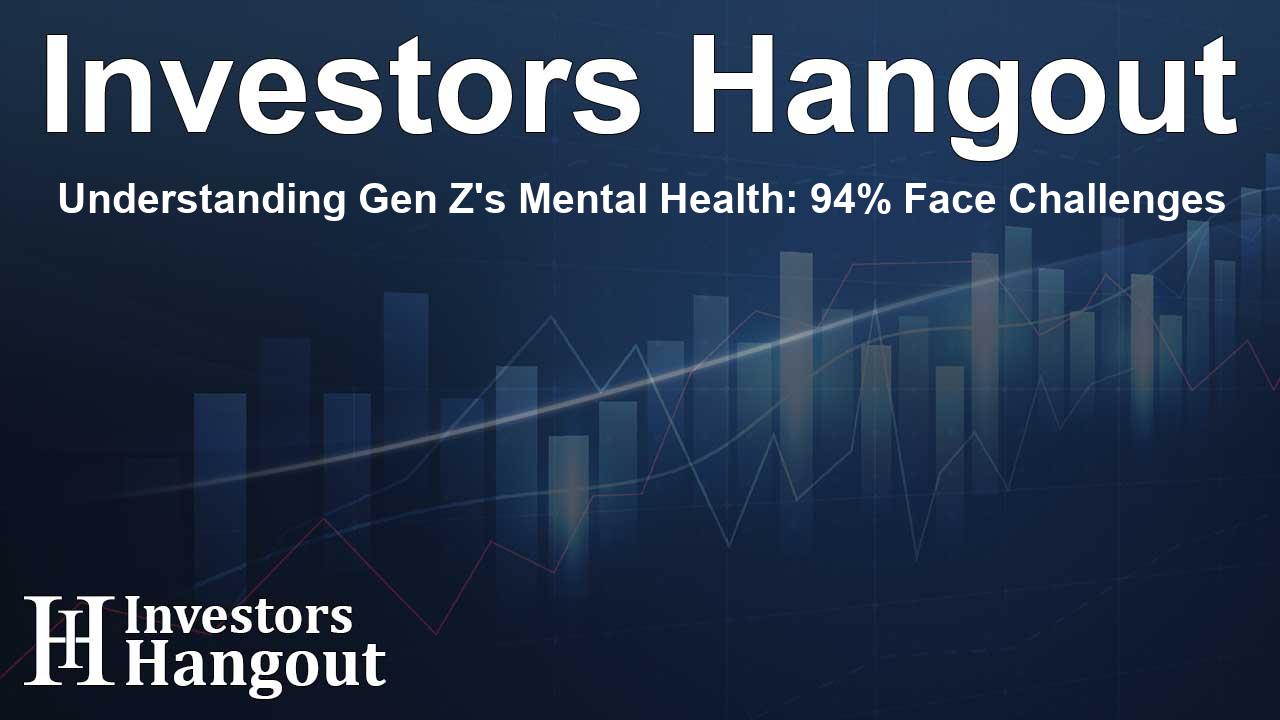Understanding Gen Z's Mental Health: 94% Face Challenges

Understanding Gen Z Mental Health Challenges
Gen Z youth are voicing serious concerns about their mental health, with 94% indicating they face challenges regularly. This alarming statistic sheds light on a generation coping with various societal pressures, such as affordability, climate change, gun violence, and discrimination.
Concerns of Today's Youth
According to a comprehensive survey conducted among California teenagers and young adults, many are faced with overwhelming issues that significantly affect their mental wellness. The study, which involved 750 participants aged 14 to 25, captured their struggles and the actions they are taking to cope with the current climate of anxiety.
Top Mental Health Concerns
The survey revealed that youths have several top concerns. A vast majority express pressures regarding affordability, with 87% worrying about housing costs, 84% concerned about grocery prices, and 73% expressing anxiety about job opportunities. Climate change weighed heavily on the minds of 78% of respondents, while 85% indicated gun violence as a significant worry. Discrimination also ranked high, with substantial concern reported among youths regarding racism and issues affecting the LGBTQ+ community.
Taking Action: Coping Mechanisms
Despite these formidable challenges, many young individuals are proactively seeking ways to safeguard their mental health. Approximately 69% report discussing their feelings with friends. The survey indicated that 99% of those concerned about climate change have taken at least one positive climate action in the past year. This shows a proactive generation looking to effect change and find solutions.
Engaging in Positive Activities
Youths are not just talking but also taking part in various activities to manage their mental health. From reducing plastic use to staying connected with their hobbies, many engage in positive actions. Activities like listening to music, spending time outdoors, and exercising are common outlets used by 77%, 41%, and 55% of youths, respectively.
The Double-Edged Sword of Social Media
Social media presents both challenges and benefits for young people's mental health. While 56% of Gen Z teens report spending four or more hours daily on social platforms, many find them to be a source of support and connection. 42% believe social media positively impacts their mental health, and almost all users engage with it for entertainment and connection purposes. Nonetheless, the dark side is palpable, with 31% recognizing the harmful aspects, such as misinformation, body image issues, and cyberbullying.
Addressing Stigma and Barriers
Though there is a desire for mental health support, stigma remains a significant barrier. A staggering 35% of youths who sought assistance reported feeling embarrassed, representing a hurdle that still needs addressing. Reducing stigma is crucial for encouraging open dialogue and seeking help among young people.
The Need for Support and Understanding
Experts emphasize the importance of listening to youth experiences and recognizing the severity of the mental health crisis. Leaders in mental health, like Dr. Nicole Stelter from Blue Shield of California, stress the urgent need for clinicians and adults to engage with young people constructively. Only through understanding and support can we begin to address the mental health challenges youth face today.
Frequently Asked Questions
What percentage of Gen Z youth report mental health issues?
94% of Gen Z youth report experiencing mental health challenges regularly.
What are the main concerns for Gen Z regarding mental health?
The main concerns include affordability, climate change, gun violence, and discrimination.
How are Gen Z youth coping with mental health challenges?
Youths are coping by speaking with friends about their feelings and engaging in pro-climate actions and creative outlets.
What role does social media play in youth mental health?
Social media has both positive and negative impacts, providing connection and support but also contributing to issues like misinformation and body image problems.
What barriers do youths face in seeking mental health support?
Embarrassment and stigma are significant barriers that prevent youths from accessing the mental health support they need.
About The Author
Contact Ryan Hughes privately here. Or send an email with ATTN: Ryan Hughes as the subject to contact@investorshangout.com.
About Investors Hangout
Investors Hangout is a leading online stock forum for financial discussion and learning, offering a wide range of free tools and resources. It draws in traders of all levels, who exchange market knowledge, investigate trading tactics, and keep an eye on industry developments in real time. Featuring financial articles, stock message boards, quotes, charts, company profiles, and live news updates. Through cooperative learning and a wealth of informational resources, it helps users from novices creating their first portfolios to experts honing their techniques. Join Investors Hangout today: https://investorshangout.com/
The content of this article is based on factual, publicly available information and does not represent legal, financial, or investment advice. Investors Hangout does not offer financial advice, and the author is not a licensed financial advisor. Consult a qualified advisor before making any financial or investment decisions based on this article. This article should not be considered advice to purchase, sell, or hold any securities or other investments. If any of the material provided here is inaccurate, please contact us for corrections.
